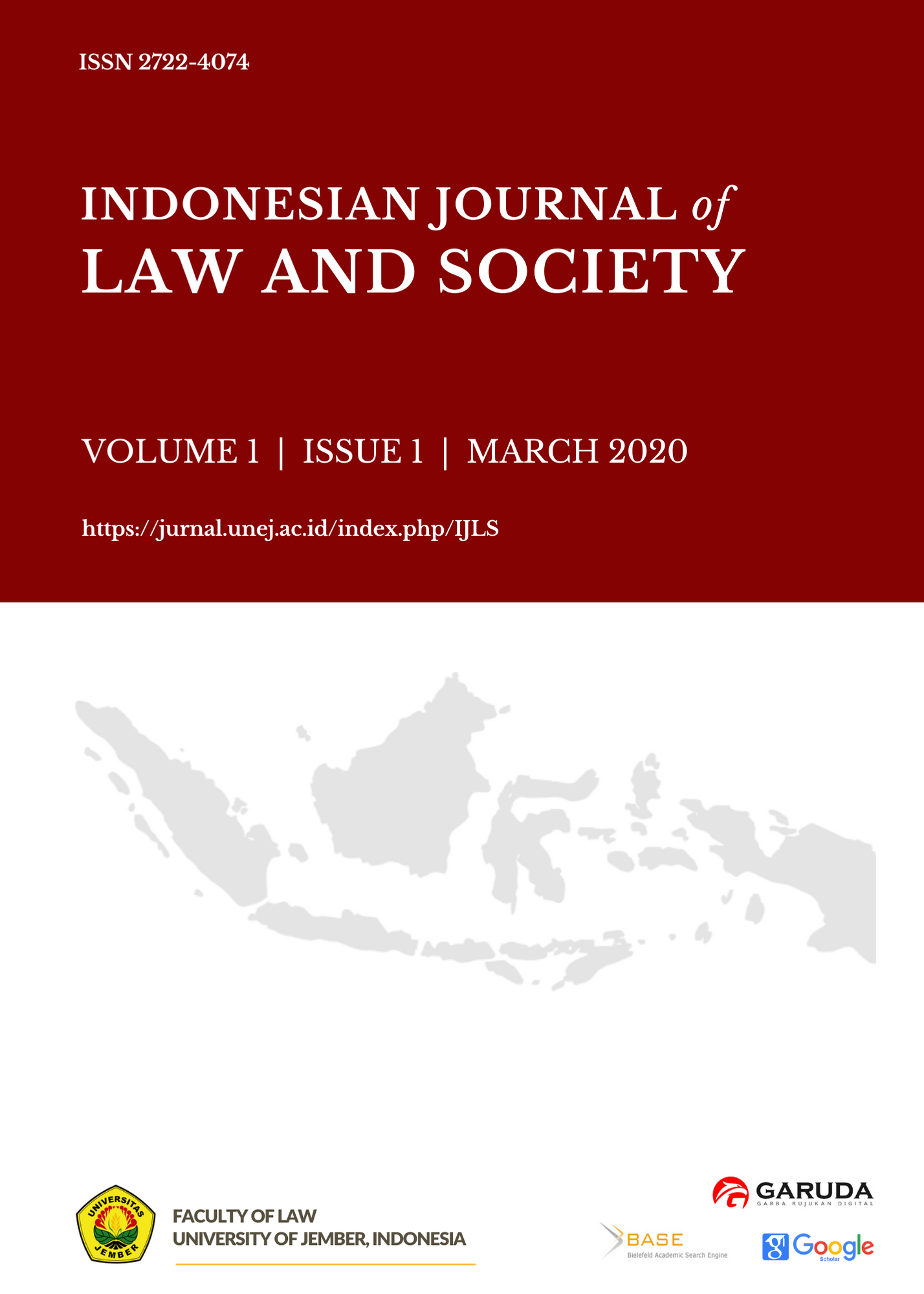Political Rights of the Indonesian Citizen Possessing Dual Citizenship: A Contextual Analysis
Abstract
The issue of citizenship is one part of the study of state studies or commonly referred to as State Administration Law. One element of state existence is citizenship (algemene staatslehre). In the context of citizenship, the issue of citizenship is critical because, in general, the state consists of three elements, namely the territory, people who are identical with citizens, and sovereign government as a constitutive element and the recognition of other countries as declarative elements. Every citizen must have citizenship because it is an essential thing. After all, citizenship has a close relationship between the citizen and the country in which the citizen lives. These matters relate to citizens related to identity, rights, obligations, participation or participation, and shared social ownership. In addition, with citizenship, citizens automatically have legal protection wherever they are. Having two citizenships is no longer a taboo for citizens and is likely to continue to develop in the future. The fact is that there are citizens aged 18 years or over who have dual citizenship, even though the ownership of dual citizenship should be limited. One of the rights of every citizen is the right to be elected and elected. However, there are still citizens who have dual citizenship. Because of dual citizenship, approaching the General Election confuses citizens of those who have dual citizenship but still wants to fulfill their rights in electing potential national leaders and also the right to lead Indonesia.
Keywords: Political Rights, Citizenship, Dual Citizenship.
The Indonesian Journal of Law and Society has CC-BY-SA or an equivalent license as the optimal license for publishing, distributing, using, and reusing scholarly work. Authors who publish with this journal retain copyright and grant the journal right of first publication with the work simultaneously licensed under a Creative Commons Attribution-ShareAlike 4.0 International License that allows others with permission from the publisher to share the work with an acknowledgment of the work's authorship and initial publication in this journal.




